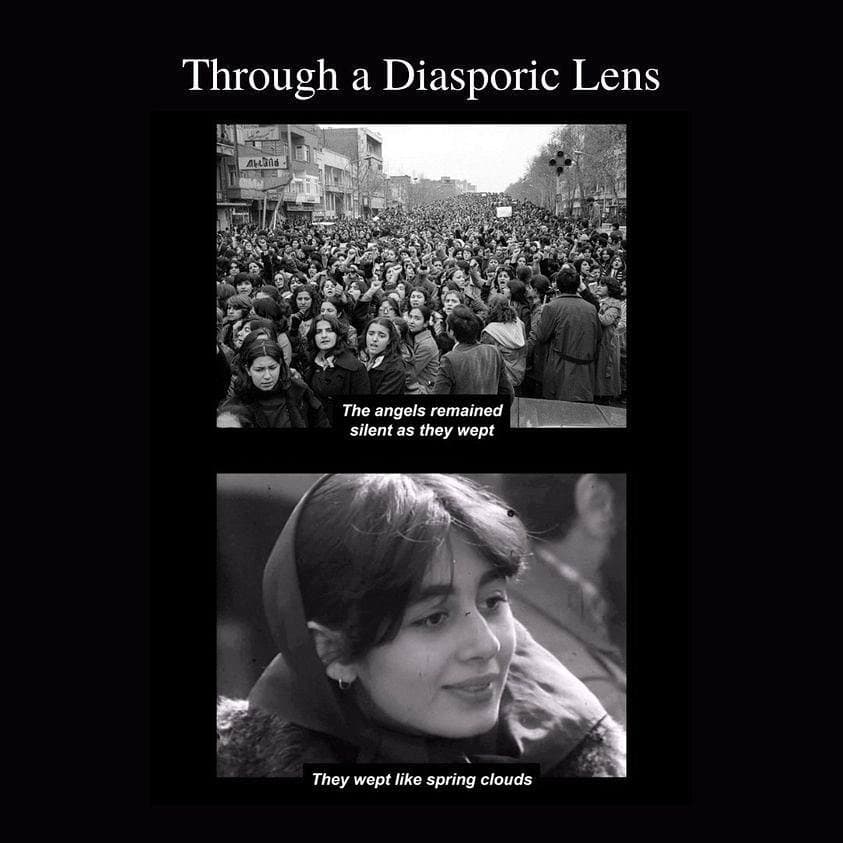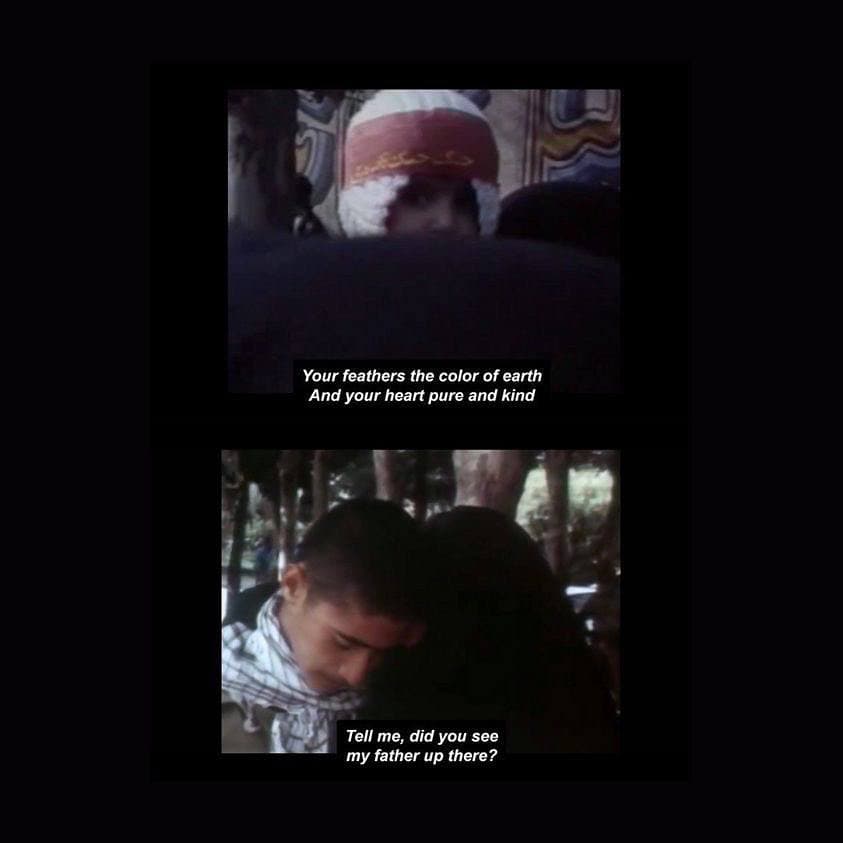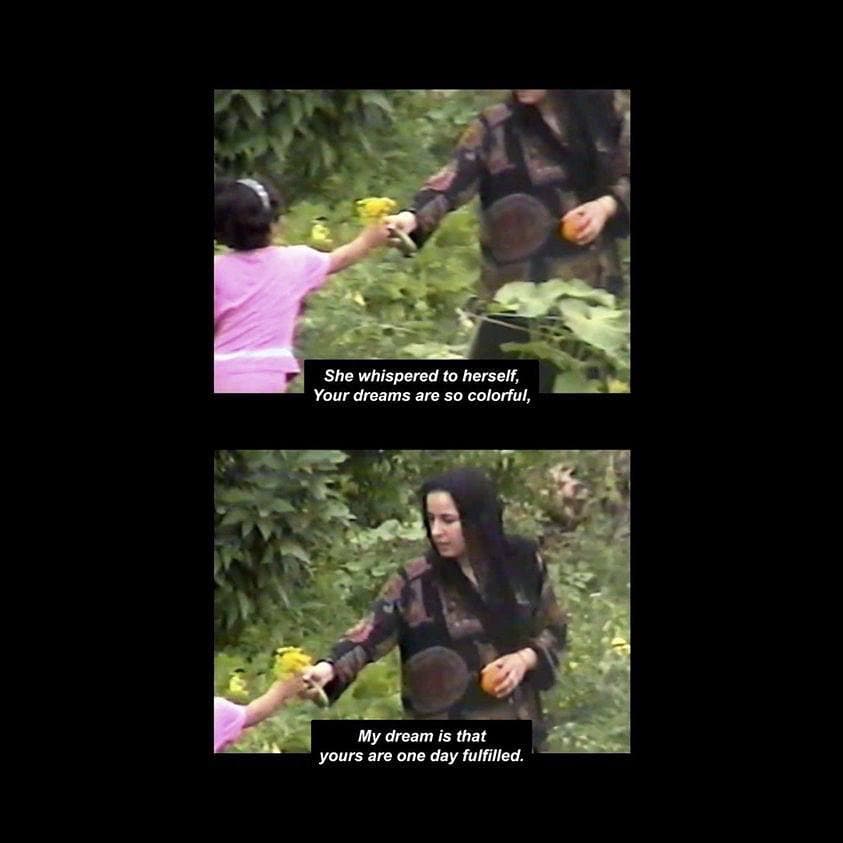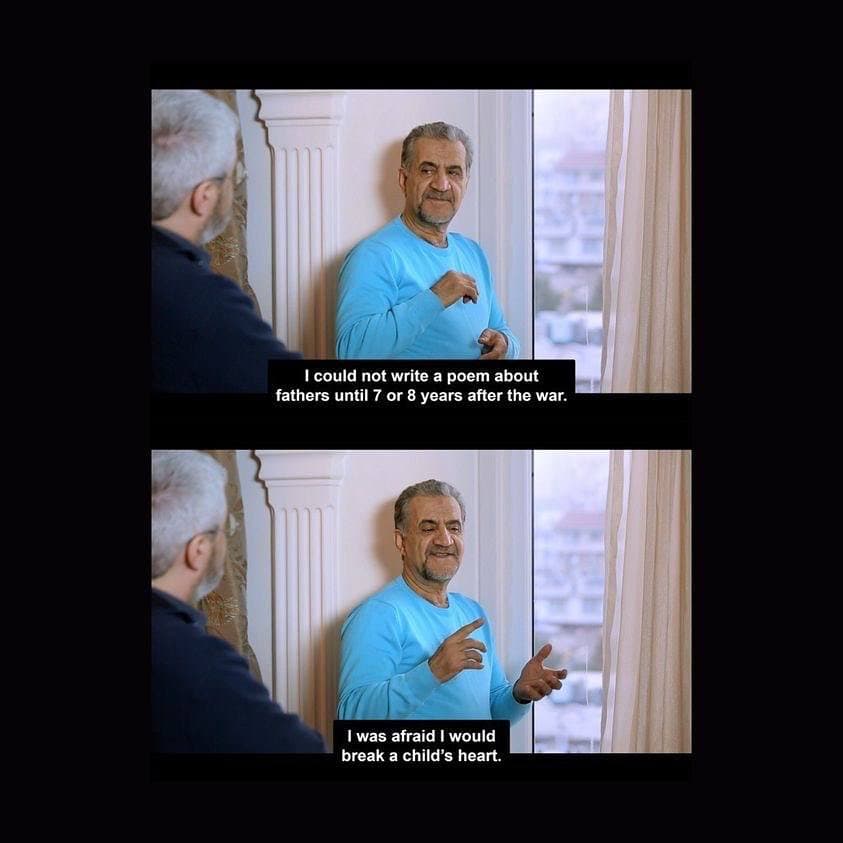
Nasser Saffarian’s ‘The Unfinished Childhood’ (2021), explores the central role of poetry in the lives of Iranian children after the revolution. Throughout the documentary, various important figures are interviewed, with their perspectives serving to highlight the development of children’s poetry through the years, and its significance today.

The documentary delves into the struggles that each interviewee faced in regards to harsh criticism, censorship, authority figures, and whether to convey difficult topics of the time when many children may not fully grasp the state of the world around them. Through each interview, one is left to question the accessibility of children's media, particularly if it is better for children to learn proper or colloquial Persian, and what messages a child should or should not consume. Saffarian utilizes photography and video clips of children's programs from the 1980s to complement each interviewee’s reflection. But it is the way Saffarian represents poetry itself–namely through music and spoken word–that makes this film so well-rounded, reminding viewers that children are often deeply and negatively implicated in adult affairs.


While viewing Saffarian’s film, audience members may resonate with the message regarding the centrality of poetry. Importantly, the prevalence of this connection in the diaspora reveals that indeed, the emotional effects of Iranian poems reach beyond the borders of Iran, and across generations as well.
Iranian Diaspora Studies
DECEMBER 31, 2021